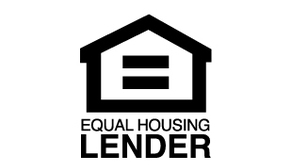When you have been making payments towards your mortgage for many years, you may start to wonder how much is left to pay. It could be that after looking at your current balance, you realize that it is low enough that you could seriously consider paying it all off and being mortgage-free.
When looking at your current balance it’s important to realize that this is not the full amount that is due, and that you should speak to your lender for your full mortgage payoff.
In many cases, people forget that the mortgage payoff will be higher than their current balance and will be surprised when the figure is more than expected.
Below we look more into mortgages and why the mortgage payoff is higher than the current balance.

Why is your Mortgage Payoff Higher than the Balance?
Your mortgage payoff is the amount of money that you owe to your mortgage provider taking into account the terms of your mortgage.
This includes the interest you will be paying and other fees. Essentially, this is what the mortgage will cost you over the term of your mortgage when taking out the loan.
Your current balance is different from this as it shows what you have currently paid, excluding the interest that is due.
When looking at your statement you may think that you have nearly paid off the loan but when contacting the lender be told that the remaining balance is higher than anticipated.
The balance on your loan statement is what is currently owed as of the date of the statement. However, interest will continue to accrue each day after that date.
When paying a mortgage off early, it’s possible you can be subject to early repayment penalties.
An early repayment penalty is a fee that is imposed by the lender if the borrower chooses to sell the property before the loan is paid off.
Most mortgage agreements include these prepayment penalties to avoid the mortgage being paid off sooner than agreed within the contract.
If your lender cannot collect interest from an early repayment then the penalty fee is enforced to recoup the loss.
Mortgage Interest is Paid in Arrears
In the U.S., mortgage interest is paid in arrears. This means that when you make your payment on the first of the month, you are paying the previous month’s interest.
When you buy or refinance a home, the mortgage interest in arrears can affect your payments. If you close any day other than the first or last day of the month, then you’ll find that you owe some accrued interest.
Since mortgage loans are typically due on the first of each month, closing your loan during the month will result in owing interest from the closing day through the remainder of the month.
How much More is the Mortgage Payoff than the Balance?
Borrowers commonly confused the current balance on their mortgage with their mortgage loan payoff. However, the mortgage loan payoff is typically higher than the balance on your monthly statement.
The mortgage payoff will differ depending on the terms of your mortgage agreement. That being said, in simple terms, the difference is essentially the mortgage interest that you agreed to pay when taking out the loan.
The lender will continue to add interest to the loan until the payment has been received. When requesting your mortgage payoff amount, the interest will continue to be added right up to the moment you pay them. This is why the mortgage payoff could change again if you delay your payment.
Additionally, your mortgage payoff can include other fees charged by your lender. The most common items found on a mortgage payoff statement are:
- The principal balance of your mortgage loan.
- The interest is to be paid through the payoff date.
- Daily interest charges for the remainder of the month.
- The payoff statement fee.
- Any relevant escrow shortage or overage.
How Long Does it Take to Get a Payoff Statement?
The law says that your mortgage provider is required to send you your payoff statement within seven business days of you informing them that you require it.
Many providers will supply you with it quicker than this, so it depends on the company you are using. This law is subject to very few exceptions. These exceptions include:
- The loan is a reverse mortgage loan.
- The loan is currently in foreclosure or bankruptcy.
- The mortgage servicer specified certain requirements for a payoff request that weren’t followed. This could be a specific mailing address, email address, or fax number where payoff information requests need to be sent.
If you haven’t received your payoff statement within the appropriate time frame, you should consider sending a “notice of error” to your mortgage provider asking for the statement. Your mortgage provider will have seven days to respond to your request.
You can also send a notice of error in order to dispute the accuracy of your payoff statement if you believe that the amount is incorrect.
If your mortgage provider doesn’t respond to the notice of error, it’s advisable to consult with an attorney.
Mortgage Payoff Formula
There are many payoff loan calculators online that you can use to estimate how much your mortgage payoff will be. However, if you are interested in calculating it yourself, you can do it by using this formula (It looks more complicated than it is).
B = L [(1 + c)^n – (1 + c)^p] / [(1 + c)^n (- 1)] , in which:
B = ($) payoff balance due
L = ($) total loan amount
c = interest rate (annual rate / 12)
n = total payments (years x 12 for monthly payments)
p = number of payments made so far
Alternatively, as mentioned above, contact your preferred mortgage lender and they will be able to provide an estimate and official figure for you.
Selling a House with a Mortgage
As you can imagine the majority of all homeowners have a mortgage on their property. This means that when moving you will have to sell your property that still has a mortgage on it. This can bring up a few questions such as:
Can you sell your property with a mortgage?
Yes, of course, you can. There are essentially two options that you have to choose from.
- If you sell your property before the mortgage is fully repaid, you can sell the house and use the money from the sale to pay off your mortgage.
- Move your current mortgage over to your new property.
What happens to my mortgage when I sell my home?
In most cases, the sale of your property will provide you with sufficient funds to pay off the mortgage that you have on the property.
Although it’s unlikely, if the sale of the property is less than the mortgage, then you are still required to pay the remaining balance.
Is moving my mortgage over instead of paying it off and starting again best?
The simple answer to this question is that it depends on your circumstance. Depending on the rate you are being offered on a new mortgage it could be best to stick with your current mortgage and transfer it over.
We advise speaking to a mortgage expert to discuss all of your options.
What do I do if my mortgage has early repayment penalties?
This depends on how big the early repayment penalties are. Some penalties are based on the number of months and their equivalent interest while others are based on the remaining principal balance.
If these penalties are high then it may be more beneficial that you transfer your current mortgage over to the new property as this will avoid the early repayment penalty.
Early repayment penalties can be high on occasions so it’s always worth speaking to your mortgage lender to confirm the stipulation in your mortgage agreement before making any decisions.
Additional Read: Tips For Selling Your Home
Will Selling Your Property Clear Your Mortgage Debts?
One big question that is always asked is if selling your property will clear your mortgage debts. The answer to this is the majority of the time, yes.
If the sale of your property is worth more than your mortgage then your mortgage debts will be cleared because you will have paid off your mortgage.
It’s advisable to have a property valuation to ensure that you’re not in negative equity before deciding to sell your property.
Negative equity means that the value of your property is less than the value of the mortgage. Under these circumstances, permission from your mortgage lender is required before you can move forward with your home sale.
If you are selling your property and then taking on another mortgage you will then be required to pay off your new mortgage and take on those debts.
If you are moving to rented accommodation or the sale covers your remaining balance of the mortgage then you will not be required to pay a mortgage at all. In this way, you can be considered free of all mortgage debts.
Reach Out to A and N Mortgage
Understanding the nuance of your mortgage payoff statement is one of the most important financial skills that you can develop.
While you may think mortgage payments are straightforward and simple, mortgage payments can include taxes, fees, and other line items that can lead to many questions.
If you find that understanding the differences between your mortgage payoff and balance is too complicated or overwhelming, seek out advice from a lender like A and N Mortgage.
The team of professionals at A and N are experts at helping you use your mortgage as a smart financial tool. Contact us today!
A and N Mortgage Services Inc, a mortgage banker in Chicago, IL provides you with high-quality home loan programs, including FHA home loans, tailored to fit your unique situation with some of the most competitive rates in the nation. Whether you are a first-time homebuyer, relocating to a new job, or buying an investment property, our expert team will help you use your new mortgage as a smart financial tool.
Additional Read: Why the FHA Self-Sufficiency Test Is So Important For First-time Investors in 3- or 4-Unit Properties
Our Most Frequently Asked Questions
Q: What is Accrued Interest?
A: The loan accumulates interest (the borrower is yet to pay this interest). It may accrue daily or weekly.
Q: What Happens if I Payoff My Mortgage Early?
A: If you pay off your loan amount earlier than agreed, the lender would not be able to collect as much interest as they originally planned. As such, the lender may penalize the borrower to cover these losses.
Q: What Happens After I Pay Down The Mortgage?
A: Upon settlement of the full amount owed, the mortgage provider will issue mortgage release forms to indicate that they no longer have a lien on you. You will then be liable for your own homeowner’s insurance and property taxes from those bill issuers.







